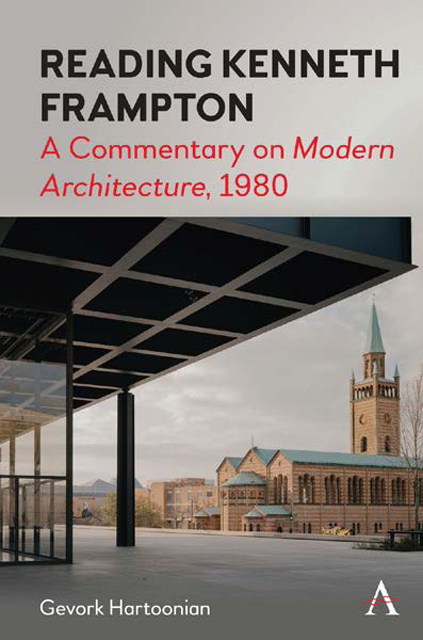1 - The Violence of Quotation
Published online by Cambridge University Press: 09 December 2022
Summary
The quotations in my works are like robbers lying in ambush on the highway to attack the passerby with weapons drawn and rob him of his conviction.
— Walter BenjaminKenneth Frampton is one of the few historians who has used an epigraph at the start of each chapter of his/ her work, in his case the famous volume Modern Architecture: A Critical History, first published in 1980. Throughout the book, each epigraph either sets the basic theoretical tone of the chapter or plots the premise of Frampton's take on a subject, which is further elaborated on in other relevant chapters. Following Walter Benjamin, we could say that Frampton's appropriation of quotation intends to rob from the traditions of the historiography of modern architecture: an interventionist strategy and one in lieu of dismantling a linear vision of time central to the preceding historiographies of modern architecture. If we do not reduce historiography to the factual presentation of data, dates and building types, then historiography proper involves a philosophy of history by which the historian maps a constellation of architects’ work abreast of available textual interpretations, critical or otherwise. This definition of “historiography” was not popular a century ago, and the absence of such a perspective along various discursive formations necessitated the emergence of different approaches to the formation of modern architecture during the 1960s. Frampton's book, among a few others, is a case in point: it was written with an eye on the suggested theoretical vacuity. However, it would be premature at this point to reflect on the word “critical,” which has particular sociopolitical connotations for most of what Frampton has written to date, not to mention its implications for the history of modern architecture discussed throughout A Critical History. Considering the epigraph Frampton chose for the introductory chapter, it is appropriate to recall Benjamin's dream project: to write a book compiled from quotations! A brief discussion of a few writings that also influenced Frampton's positions on architectural history and criticism will shed light on his appropriation of the discursive differences between Benjamin and Martin Heidegger, especially the issue of technology. In reflecting on the work of these figures, this book hopes to provide the reader with a retrospective view of Frampton's book, casting light on his short introductory text to the first edition of the book.
- Type
- Chapter
- Information
- Reading Kenneth FramptonA Commentary on 'Modern Architecture', 1980, pp. 13 - 32Publisher: Anthem PressPrint publication year: 2022

